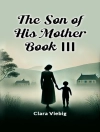Magdalen Vanstone and her sister Norah learn the true meaning of social stigma in Victorian England only after the traumatic discovery that their dearly loved parents, whose sudden deaths have left them orphans, were not married at the time of their birth. Disinherited by law and brutally ousted from Combe-Raven, the idyllic country estate which has been their peaceful home since childhood, the two young women are left to fend for themselves. While the submissive Norah follows a path of duty and hardship as a governess, her high-spirited and rebellious younger sister has made other decisions. Determined to regain her rightful inheritance at any cost, Magdalen uses her unconventional beauty and dramatic talent in recklessly pursuing her revenge. Aided by the audacious swindler Captain Wragge, she braves a series of trials leading up to the climactic test: can she trade herself in marriage to the man she loathes?
Sobre o autor
William Wilkie Collins (8 January 1824 – 23 September 1889) was an English novelist, playwright, and short story writer. His best-known works are The Woman in White (1859), No Name (1862), Armadale (1866) and The Moonstone (1868). The last is considered the first modern English detective novel.
Born into the family of painter William Collins in London, he lived with his family in Italy and France as a child and learned French and Italian. He worked as a clerk for a tea merchant. After his first novel, Antonina, was published in 1850, he met Charles Dickens, who became a close friend, mentor and collaborator. Some of Collins’s works were first published in Dickens’ journals All the Year Round and Household Words and the two collaborated on drama and fiction.












